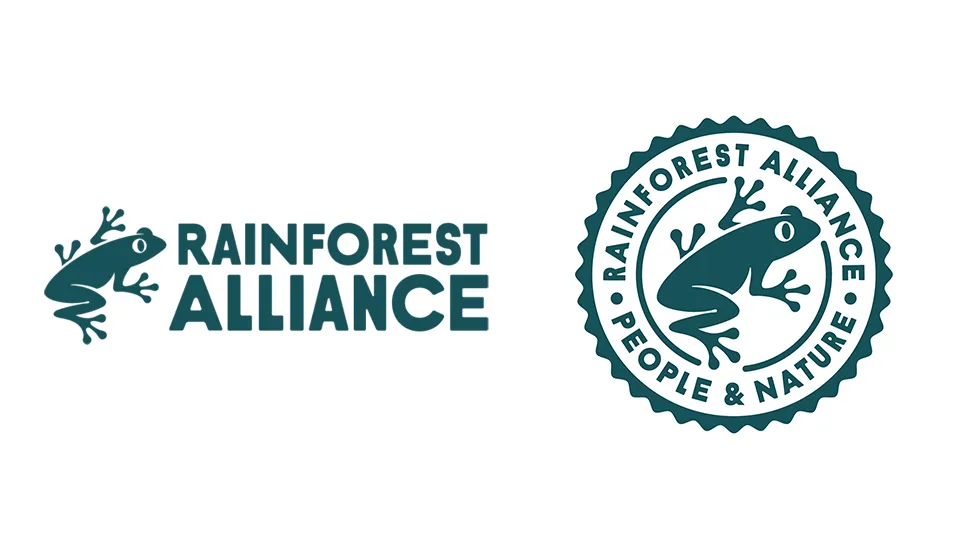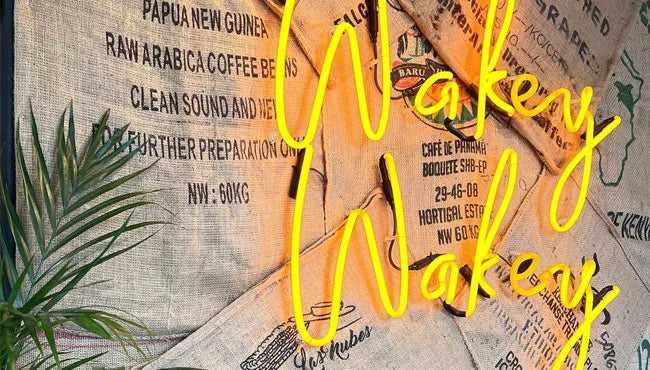At Recent Beans, we only roast speciality-grade arabica coffee. Although expensive to source, speciality-grade coffee is the cream of the crop (quite literally in this case) of green coffee beans produced in the world.
Like any other harvested food, coffee cultivation can have a negative effect on its surrounding environment. In order to prove the quality of their product and working processes, some producers and smallholder farmers chose to gain various certifications available, as a seal of approval. The Rainforest Alliance Certification is one of these certifications.
What is the Rainforest Alliance?
The Rainforest Alliance is an international, non-profit organisation that works with more than 400,000 coffee producers. Based in New York, the Rainforest Alliance works with mainly smallholder producers in Latin America, East Africa, and Asia, covering an estimated 1 million hectares of land.
Although their original mission was to form an alliance to help protect rainforest deforestation, The Rainforest Alliance now works alongside producers to also help in a range of issues surrounding coffee farming using their 3 pillars of sustainability - social, economic and environmental. Since its inception, the Rainforest Alliance has helped smallholding farms to improve sustainable livelihoods, provide better working conditions and human rights, and adapt with new technologies and cultivation practices to be more environmentally friendly.
What is Rainforest Alliance certified coffee?
It's quite simple really. A Rainforest Alliance certified coffee is a coffee that is produced from a farm that follows the policies and guidelines outlined by the Rainforest Alliance and has therefore received certification. These farms are certified by independent, third-party auditors who evaluate farmers against the requirements across the three pillars of sustainability.
These standards focus of on the following themes:
Forests
Our forests are a natural climate solution which must be protected from deforestation. The Rainforest Alliance certification program promotes farmers to use the best practices for protecting forests, improving the health of trees, soils and waterways, and not extending their cropland into existing woodland, protecting native forests.
The Rainforest Alliance promotes responsible land management on coffee farms which avoids deforestation. This is done by training smallholder farms climate-smart practices, helping to prevent stock loss through droughts, flooding and erosion.
Human Rights
It is imperative that everyone involved with the growing of coffee is fairly. The Rainforest Alliance certification assures that farms are addressing key issues in this sector such as child labour, forced labour, poor working conditions, low wages, gender inequality and the violation of indigeous land rights.
Livelihoods
The Rainforest Alliance approach is based on the understanding that economic stability and ecosystem health are mutually dependant within rural coffee growing communities. The most effective way to lift rural people out of poverty is to improve the sustainable livelihood opportunities for forest communities and smallholder farmers.

How does Rainforest Alliance certification help coffee farmers?
As coffee continues to grow in popularity with third-wave arabica coffee taking over the world, the coffee farmers are facing a number of challenges. Rising global temperatures and worsening climate conditions have increased problems on farms such as pest outbreaks and fungal diseases.
The Rainforest Alliance works with these coffee farmers to improve their practices through training and access to new procedures to reduce the impact or losses caused by these types of issues. This starts by training farmers on modern farming procedures which regenerate forest ecosystems, leading to more nutrient soil, erasing the need for chemicals which cause further environmental harm.
The process and requirements to gain Rainforest Alliance certification are not easy to achieve for most smallholding farmers. However, the benefits of this certification can quickly be seen as farmers can charge a premium for this certified coffee and be confident in knowing they have a sustainable future within the coffee farming industry.
How does Rainforest Alliance certification help the planet?
Due to the high standards and requirements of farming practices on certified farms, the coffee is grown with conservation and sustainability in mind. Farmers are required to ensure that water is used efficiently, on-farm biodiversity is enhanced and there is no un-necessary deforestation.
On some commodity-grade coffee farms, old, harmful practices are still used which can lead to water pollution and deforestation. The use of GMOs and harmful pesticides can also still be seen in some lower-level coffee farms. The Rainforest Alliance coffee certification assures non of these old, harmful practices are still in use. Farms instead grow coffee in harmony with their surroundings with healthy soils, clean waterways and flourishing wildlife.

Why is Rainforest Alliance certified coffee important?
Rainforest Alliance certification is a seal of approval that the coffee producer cares about the world we live in and the people we share it with. This applies to both environmental sustainability and eradicating human rights abuse.
As we, as a planet, continue to think more sustainably and look for more transparency in the products we buy, the Rainforest Alliance certifications gives us confidence that the coffee was produced to high standards, which protect the environment, and protect the farmers and their communities.
Conclusion
At Recent Beans, we are very strict in the coffees we roast. For all of our house, and limited, roasts we gain as much information as we can about the farm, its policies and its workers welfare.
As we only roast speciality-grade arabica, we are paying a higher price for green bean stock, allowing farmers to adhere to our strict level of expectancy. When we find a coffee with the Rainforest Alliance certification, it gives us a baseline that the coffee is being produced to a high standard, meeting strict criteria in the 3 main pillars of sustainability - social, economic and environmental.
However, the coffees we roast without this certification should not be seen as inferior. Unlike some companies and brands, we do not use any commodity-grade coffee, which is purchased cheaply, leaving farmers to use old, cheap methods for production. All our coffees, certified or not have been checked to assure they meet our in-house standards of sustainability, which match those of the Rainforest Alliance certification.







Leave a comment